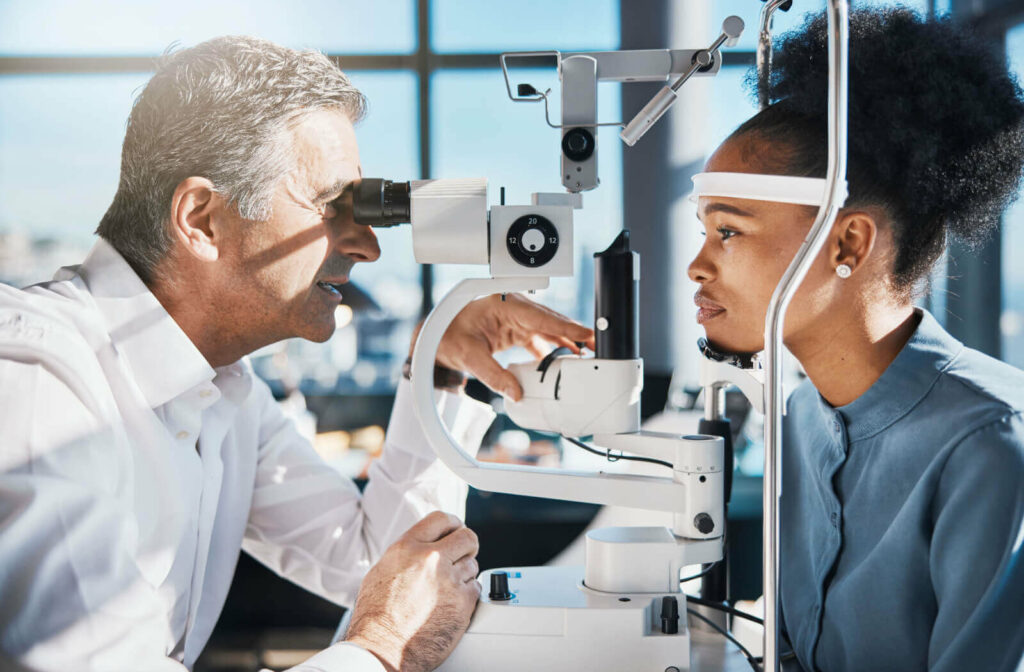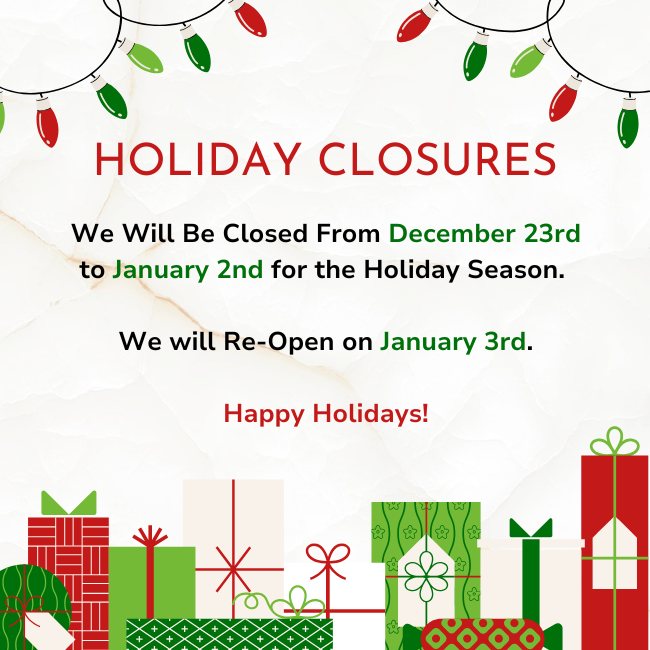Eyesight is often taken for granted—at least until something goes wrong. This is just one reason why regular comprehensive eye exams are so important! During your eye exam, your optometrist examines the different parts of your eye to catch potential problems long before they damage your eyesight and impact your eye health. So how long does an eye exam take?
Typically, an eye exam takes around 1 hour or so, but this can vary depending on whether you’re at risk of other eye conditions. If you need any additional testing, the examination may take longer.
Why Are Eye Exams So Important?
When thinking of a comprehensive eye exam, most people imagine a letter chart on the wall and testing out different lenses. While these are crucial parts of updating your prescription, they aren’t the entire exam.
Eye exams aren’t only about maintaining clear vision—they’re also about keeping watch for all kinds of potential eye conditions that may not showcase symptoms at first. Many eye conditions often develop subtly, and they can be difficult to diagnose without a clear look at the inner workings of your eye.
This is why eye exams are so important. Your optometrist can catch these problems before they damage your vision. Routine eye exams provide a proactive way to stay on top of your vision and eye health.
What Can Be Detected in an Eye Exam?
During your exam, your optometrist will perform a series of different tests to examine different parts of the eye. This helps them look for issues such as:
With all of these conditions, early detection is key to preserving your quality of life. A diagnosis means you can start seeking treatment sooner rather than later—before you experience any significant damage to your eyesight.
What to Expect During Your Next Eye Exam
When you visit our team at White Oaks Optometry for your next eye exam, we’ll begin by quickly going over your family history, medical history, and any recent symptoms that you may have experienced. You’ll need to fill out some paperwork detailing your current situation, so it helps to bring along:
- A list of any changes in your vision
- Your current prescription
- A list of any medications you’re currently taking
- A list of any previously diagnosed medical or eye conditions
This information is more valuable than you might think. Our team can tailor the exam to your specific needs. Then, you’ll go into the exam room.
During the Exam
Once the exam begins, your optometrist will work through a series of different tests, letting them examine the different parts of your eye so they understand exactly what’s occurring.
Your optometrist may check your:
- Visual acuity
- Colour vision
- Binocular vision
- Depth perception
- Peripheral vision
- Retinal health
- Pupil dilation
- Intraocular pressure
If you have questions at any point throughout your exam, feel free to speak up and ask your optometrist what each test is for.
After the Exam
Once the exam is complete, our team will take the time to go over the results with you. We’ll discuss anything of concern and create a treatment plan if needed. We may also recommend a personalized schedule for routine eye exams to monitor concerns.
If you need new eyeglasses or contact lenses, we’ll walk you through the next step of the process. From start to finish, this entire process usually takes around 1 hour or so. However, if you need any additional testing, it may take a little longer. We prefer to be thorough.
How Often Should You Get Your Eyes Checked?
Now that you know how important comprehensive eye exams are, there’s one question remaining: how often should you get your eyes checked?
This can vary depending on your age. Try to follow these guidelines:
- For children, the first eye exam should be scheduled around 6 months old. Then, annual children’s eye exams are recommended until they turn 19.
- For adults aged 20-39, it’s recommended to schedule an adult’s comprehensive eye exam every 2-3 years.
- For adults aged 40-64, it’s recommended to schedule an eye exam every 2 years.
- For adults aged 65 and older, it’s recommended to schedule eye exams every year.
For people of any age with high myopia or other vision concerns, it’s recommended to schedule exams more frequently. Additionally, people living with diabetes should get a diabetic eye exam at least once a year or more frequently if diagnosed with diabetic retinopathy.
During an eye exam, your optometrist also evaluates whether you’re at risk for eye concerns or conditions and may provide a personalized eye exam schedule.
However, if you notice anything unusual with your eyes and vision between visits, it helps to see your optometrist more often. Your eye health is precious, so you should always try to make it a priority.
Book Your Next Eye Exam with Our Team
Comprehensive eye exams are a valuable tool that lets you stay on top of your eye health and vision.
Through an eye exam with our team at White Oaks Optometry, you can have an up-to-date understanding of your eyes’ inner workings, and our team can help you manage any potential conditions. Book an appointment with our team, and let’s work together to keep your vision healthy.



